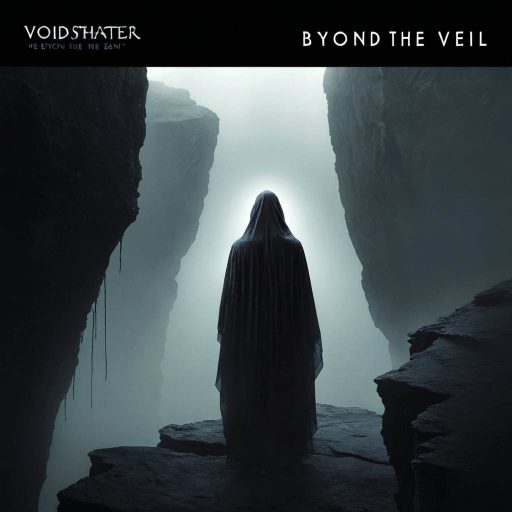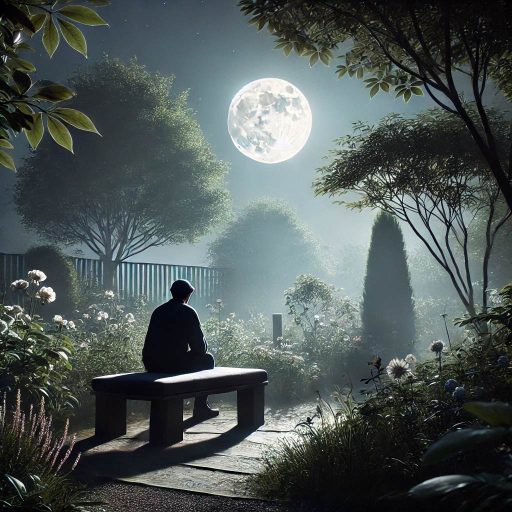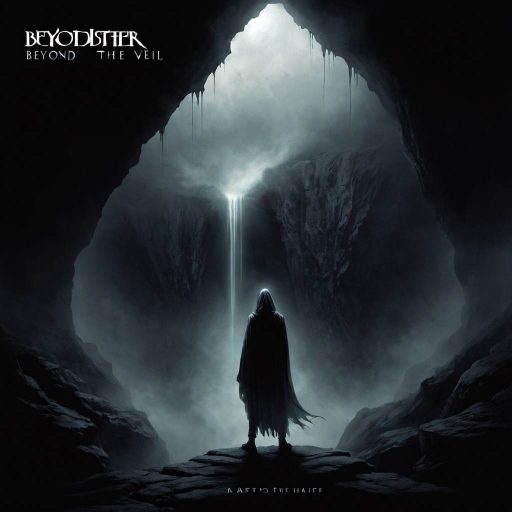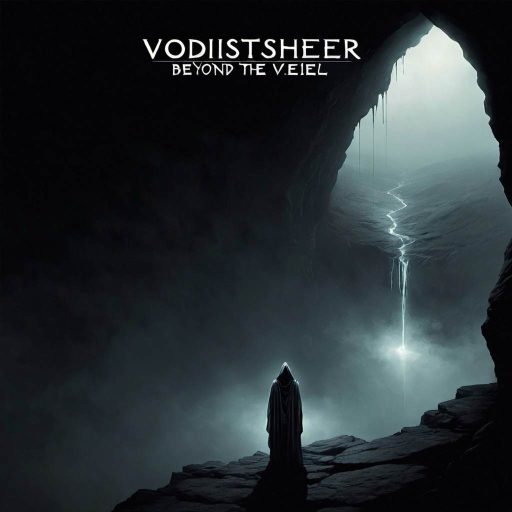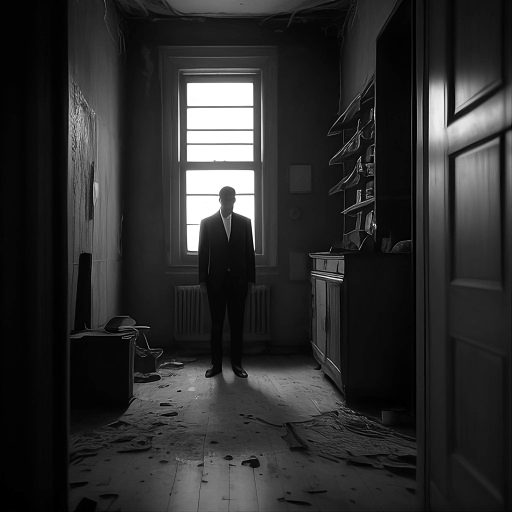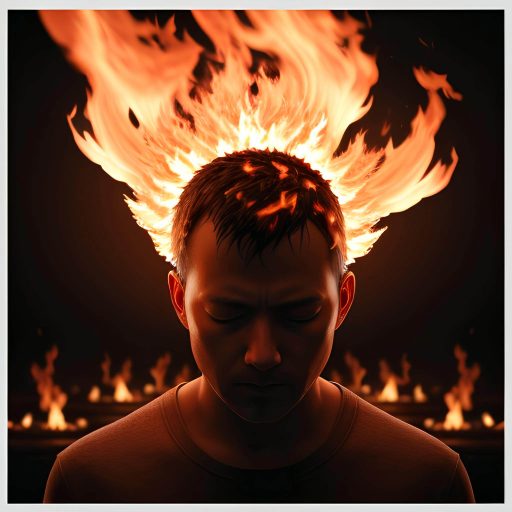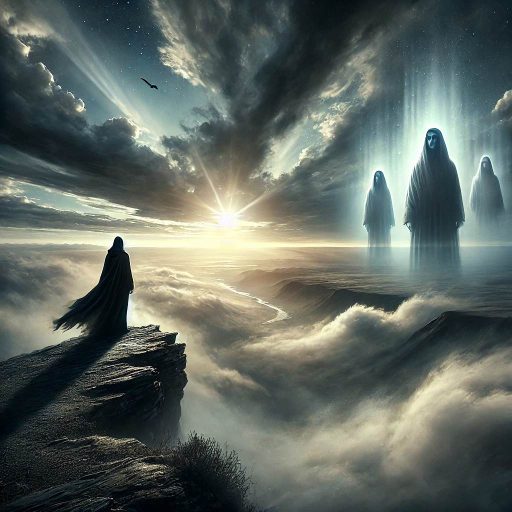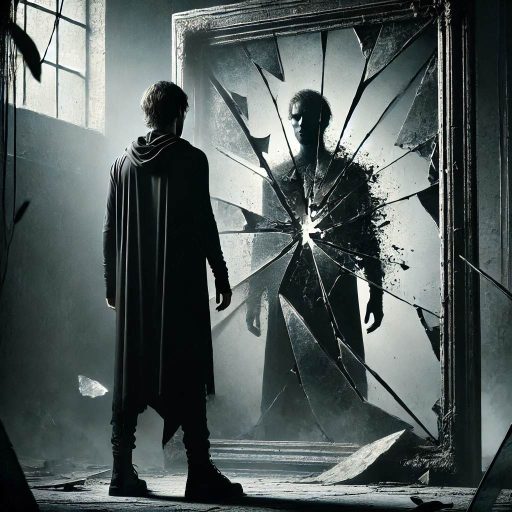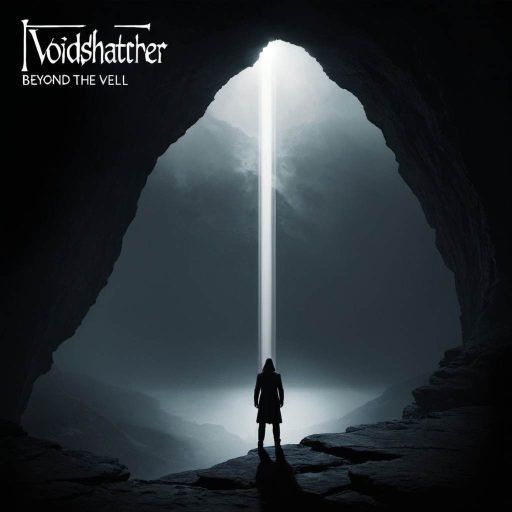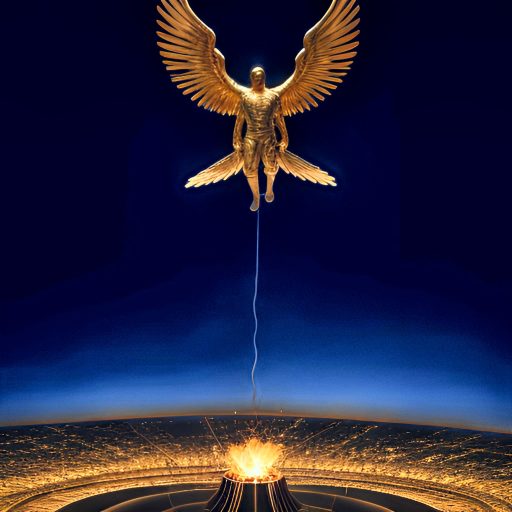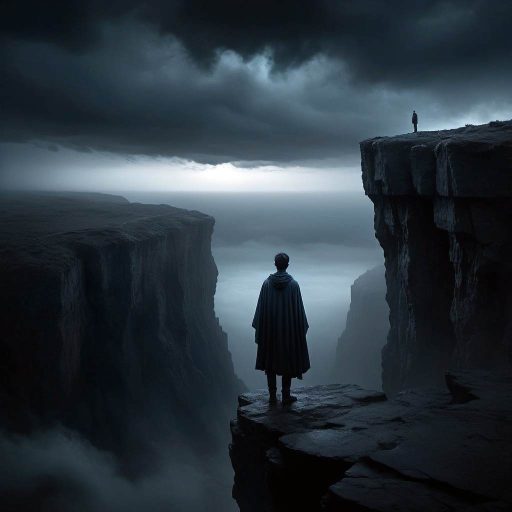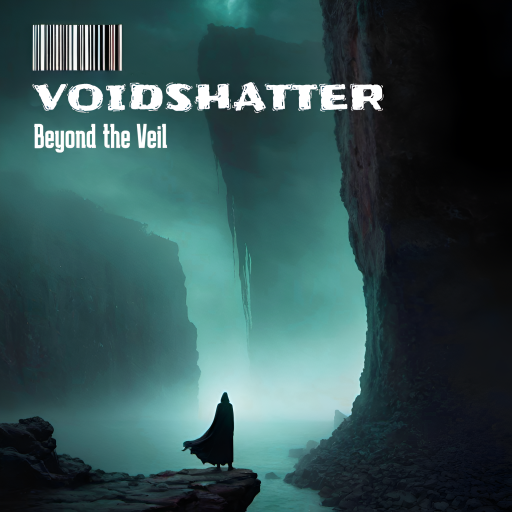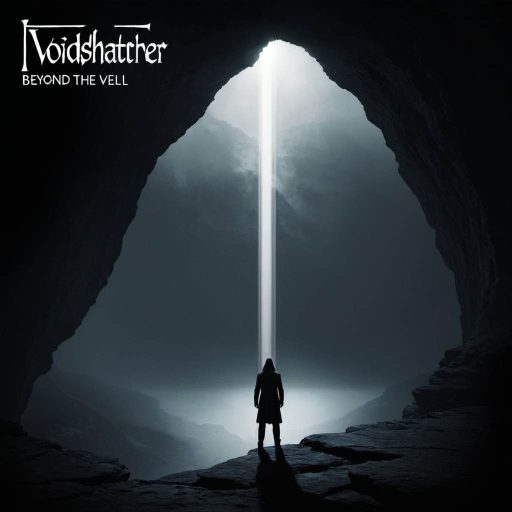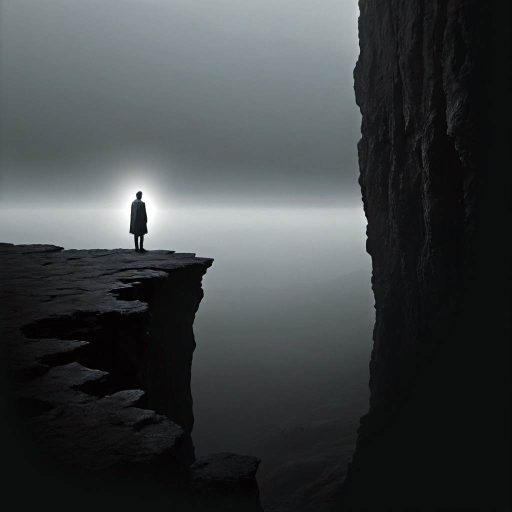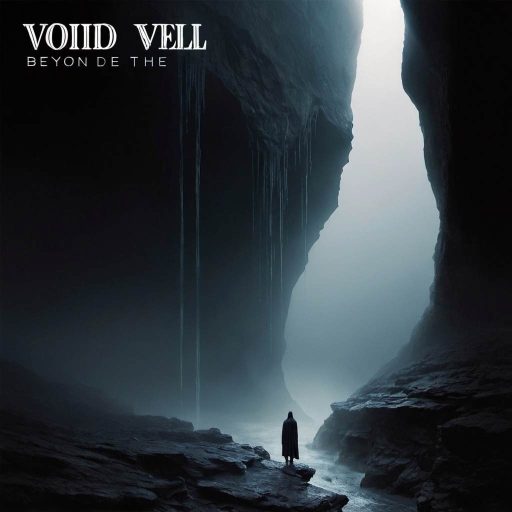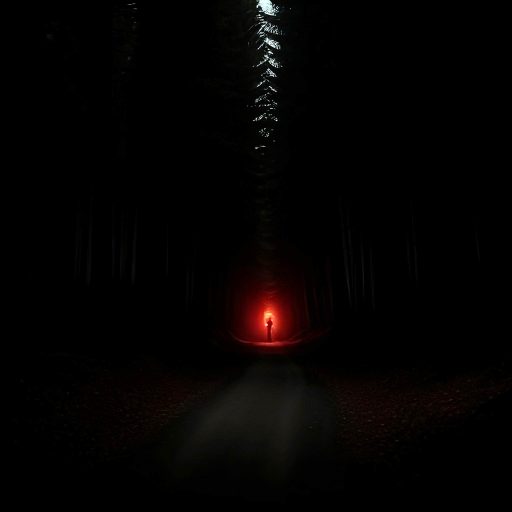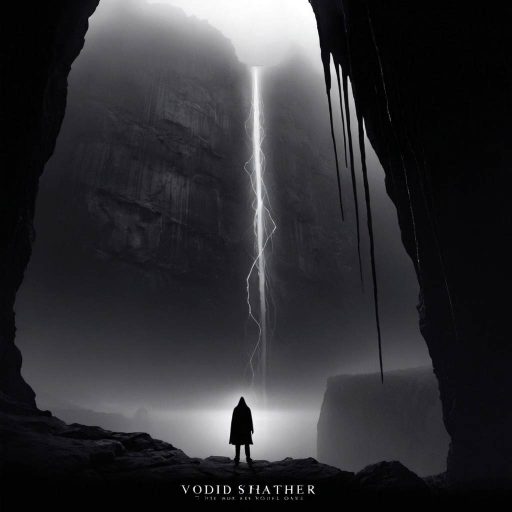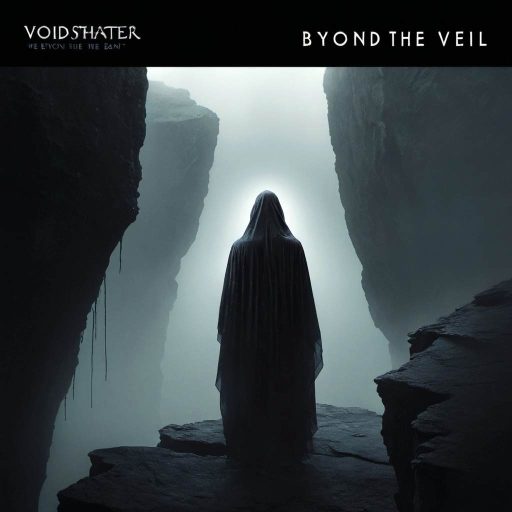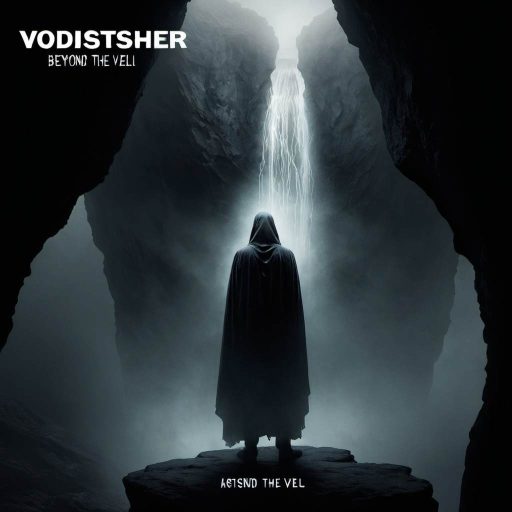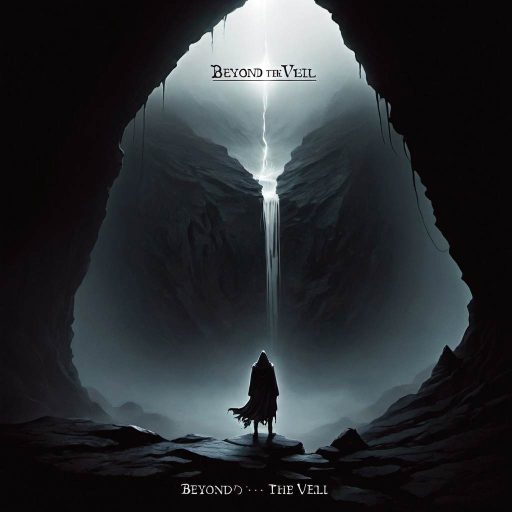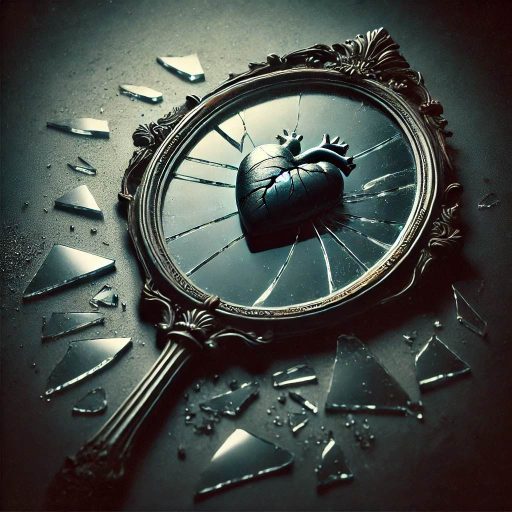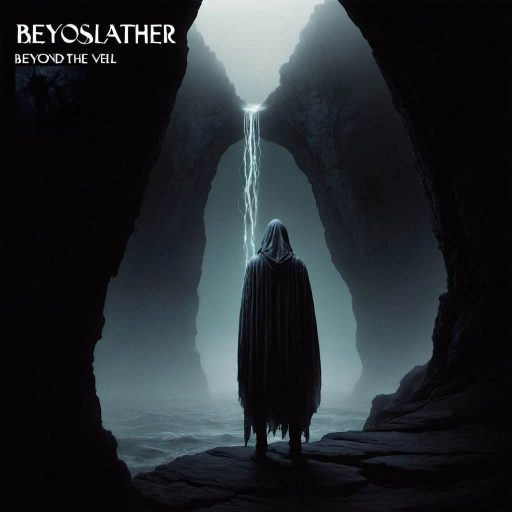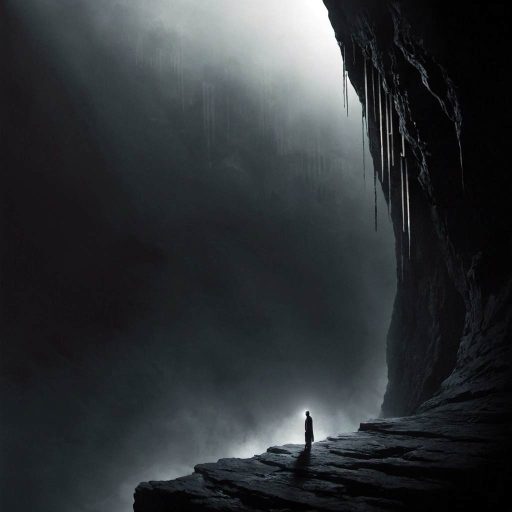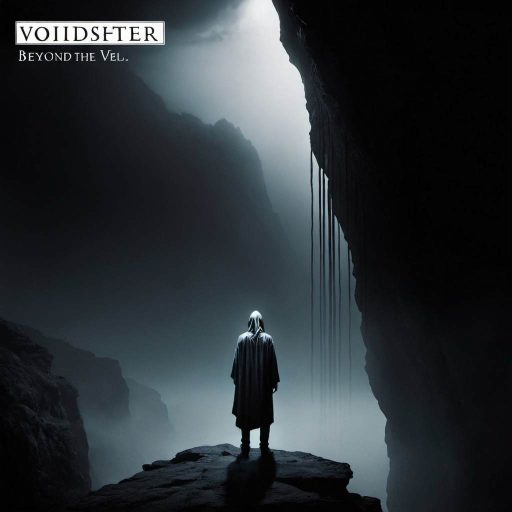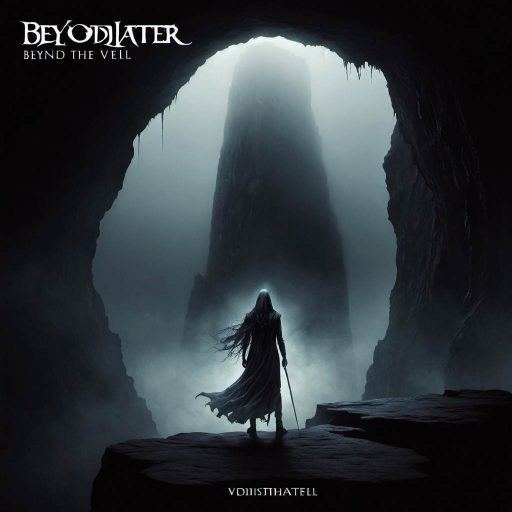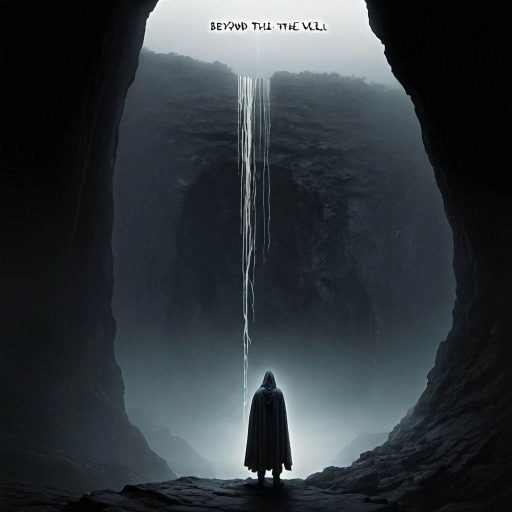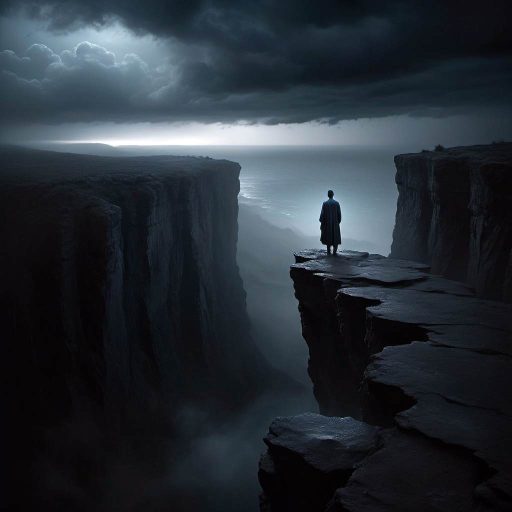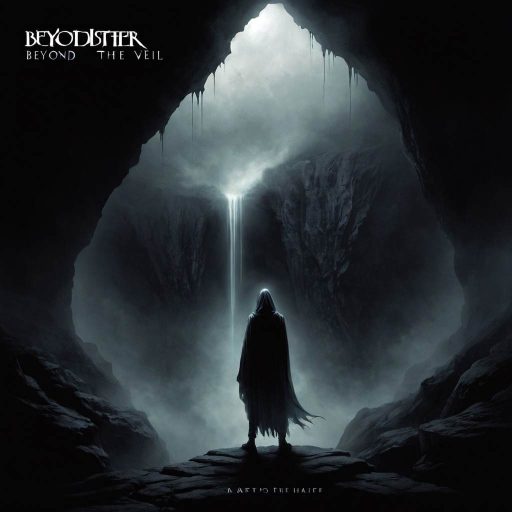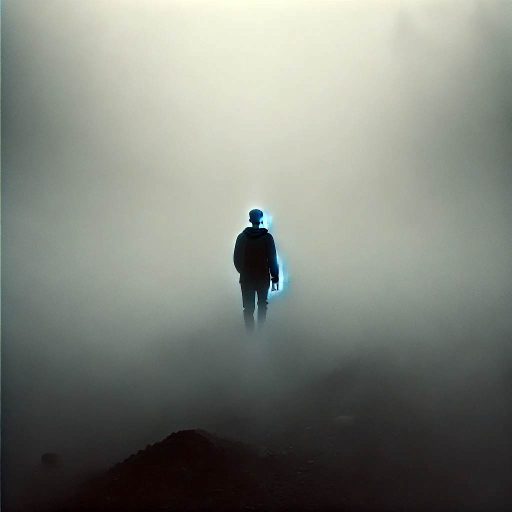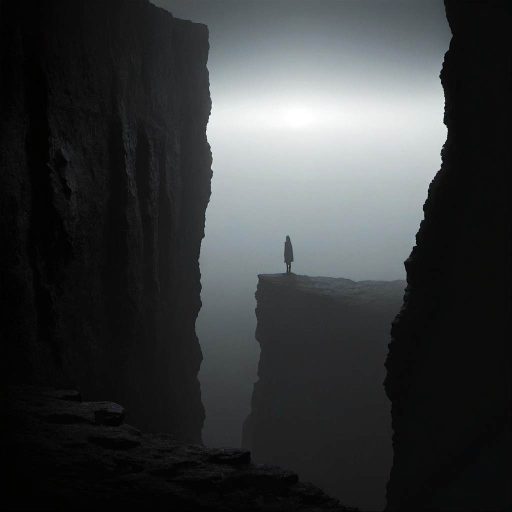Note from Human Editor: This is for my son. He rocks hard. I do not. So, I tried emulating his favorite band and added some tracks that hopefully are in the ballparks of current Metal sub-genres, some real, some imagined.
All have roots in "British Metal," a style of heavy metal music that originated in the UK in the late 1960s and early 1970s. British Metal is and was instrumental in shaping the heavy metal scene globally and is considered a precursor to many modern metal subgenres, like here. Clearly, there is British blood in my unknown veins.
The narrative is mine as usual, the kernel of all my media, in collaboration with various AIs. My cross-training for TATANKA continues, but this is really a love letter to my beautiful boy in a language we always will share.
True greatness is not found in the pursuit of personal glory, but in the strength of community and the willingness to seek redemption after failure.
Theme and Narrative Arc
Beyond the Veil is an album meant to be experienced as a journey. Each song is a step along a path that begins in darkness but ultimately leads to light. VOIDSHATTER encourages listeners to not only feel the music but also to reflect on their own journeys, recognizing that while the veil may seem to conceal, there is always the authentic self beyond, and within.
Download (FREE) all Media and Bonus Tracks:
VOIDSHATTER – Beyond the Veil.zip (412.4 MB)
Album Stream
YouTube Playlist
Track Sequencing
The album begins with “Burning Inferno,” establishing the raw emotional turmoil and anger that the protagonist feels. This sets the stage for “Fractured Soul,” where the character is grappling with a sense of being broken and disconnected from themselves. “Shattered Dreams” follows, focusing on disappointment and heartbreak, deepening the emotional despair. “Echoes in the Dark” explores regret and past mistakes, reinforcing the haunting nature of the protagonist’s emotions.
“Lost in the Haze” brings the theme of feeling lost and disconnected to the forefront, which is further compounded by “Fading Away,” where the protagonist feels invisible and insignificant. The mood begins to shift with “Shadows Within,” where the character starts to confront their inner darkness and flaws, setting the stage for “Ghosts of Love,” which revisits the pain of lost connections.
“Into the Abyss” marks a turning point, where the protagonist faces their fears and inner demons, signaling the beginning of their transformation. The album concludes with “Whispers in the Night,” where the protagonist, now having faced their darkness, begins to search for hope and guidance, symbolizing a move toward self-forgiveness and redemption.
Tracks
Burning Inferno
This track represents the peak of the protagonist’s anger and inner turmoil. Starting the album with this intense expression of rage sets the tone for the dark journey ahead.
Echoes in the Dark
Following the rage comes the realization of past mistakes and regrets. The protagonist is haunted by the consequences of his actions, adding depth to his internal struggle.
Shattered Dreams
This song digs deep into the heartbreak and disappointment that the protagonist experiences, deepening his sense of loss and disillusionment.
Lost in the Haze
The protagonist now feels disconnected and lost in life, further emphasizing the sense of being overwhelmed by negative emotions and confusion.
Fading Away
This track captures the protagonist’s feelings of invisibility and insignificance, portraying a deep sense of hopelessness and fading self-worth.
Fractured Soul
The protagonist confronts the feeling of being broken and disconnected from himself. This is a critical moment of self-reflection.
Ghosts of Love
The protagonist longs for a past love and connection, adding a layer of nostalgia and sorrow to his journey.
Shadows Within
Here, the protagonist begins to confront his own darkness and flaws, setting the stage for personal growth and transformation.
Into the Abyss
The protagonist faces his fears and inner demons head-on, signaling a turning point in the narrative where he begins to fight back.
Whispers in the Night
The protagonist begins searching for hope and guidance, suggesting the first glimmers of light breaking through the darkness.
Phoenix Rising
The protagonist finds a sense of direction and purpose, symbolizing his commitment to moving forward and leaving the darkness behind.
In the Silence
Forgiveness is a crucial part of the healing process, and here the protagonist begins to forgive himself for his past mistakes.
Eternal Dawn
The protagonist begins to overcome his challenges, rising above the negativity that once held him back. He finds the promise of hope, renewal, and rebirth.
Echoes of Eternity
The protagonist exits his veil and for the first time sees his future, which is infinite. He is humbled at the sight and comprehension of the sunrise, on his brand new day and life.
Redemption’s Call
The protagonist has been redeemed, fully embraced his new self, and found peace with his past.
Beyond the Veil
The album concludes with the title track. The protagonist has found truth and understanding, removing his mask, destroying his walls, and disrobing from his veil for good. He is reincarnated into his authentic self.
Voidshatter
Voidshatter formed in the underground metal scene of the gritty Detroit landscape. Each member brought their unique pain and struggles to the table, finding solace and expression in the intensity of their music. Their first album, “Shattered Existence,” was a raw, unfiltered look at emotional pain and immediately resonated with fans. “Beyond the Veil” is their second album and represents a more mature, introspective exploration of those themes. As the band continues to evolve, they plan to explore even deeper themes of human existence, hoping to provide their listeners with both catharsis and a sense of solidarity in the face of challenge.
Alex “Inferno” Blackwood (Lead Vocals)

A forceful and passionate vocalist with a background in thrash and death metal, Alex channels his own struggles with anger and despair into powerful, raw performances. He started the band after overcoming personal demons and wanted to create music that mirrored his journey.
Marcus “Shadows” Vale (Lead Guitar)

Known for his intricate and emotive guitar work, Marcus was drawn to the darker side of music from an early age. His riffs are as haunting as they are complex, embodying the struggles of the human spirit. He met Alex during a local metal festival, where they discovered their shared vision.
Emily “Echo” Clarke (Bass Guitar)

Emily’s deep, resonant bass lines provide the grounding force in the band’s music. Her calm demeanor contrasts with the intense themes of the music, but her playing is where she pours out all her emotions and intensity. Emily joined the band after Marcus noticed her playing at an underground metal club.
Jason “Void” Reynolds (Drums)

Jason’s drumming is relentless and precise, often reflecting the chaos and inner turmoil explored in the band’s music. Having grown up in a strict, disciplined environment, Jason’s drumming is his rebellion, his way of breaking free. He was the last to join the band, completing the lineup after a chance meeting with Alex.
The Lighthouse (PDF)
Below is a short story based on the concept album, Beyond the Veil’s narrative arc. The story explores themes of unchecked ambition, the consequences of hubris, the value of personal relationships, humility, and the potential for redemption.
Characters
- Jonathan: A young, ambitious man who learns the value of humility and the consequences of hubris.
- Elias: An old lighthouse keeper who serves as a mentor to Jonathan and embodies the wisdom that comes with age and experience.
Setting
A small coastal town and its lighthouse, representing both the guiding light of ambition and the potential destruction that comes from overreaching.
Plot
The story follows Jonathan’s rise and fall as he pursues his ambition, leading to disaster. Through his journey of redemption, he learns that true fulfillment comes from humility and serving others.
The Lighthouse
The Spark of Ambition
In a small coastal town, nestled between the rocky cliffs and the endless expanse of the ocean, stood a solitary lighthouse. Its beacon had guided countless ships safely to shore, and its keeper, an old man named Elias, had dedicated his life to maintaining its light. The town’s people revered him, seeing him as a guardian of their safety.
Elias had an apprentice, a young man named Jonathan. Jonathan was bright, curious, and filled with dreams of a world far beyond the ocean’s horizon. Unlike Elias, who was content with his quiet, simple life, Jonathan yearned for something more—something extraordinary. He spent hours in the lighthouse’s library, reading about great explorers, inventors, and the wonders of science.
One day, while dusting the shelves, Jonathan came across an old, leather-bound journal. It belonged to Elias, chronicling his attempts to improve the lighthouse’s light. Elias had once been an inventor, brimming with ideas, but life had worn him down, and he had settled into his role as a keeper of the light. Reading the journal, Jonathan’s heart raced. The old man’s ideas were brilliant, and Jonathan saw a way to bring them to life.
“Why didn’t you finish these experiments?” Jonathan asked Elias that evening.
The old man stared into the fire, his eyes reflecting the flames. “Dreams are like the sea, lad. Vast and dangerous. I lost myself in them once, nearly lost everything. Sometimes, it’s better to leave some dreams alone.”
But Jonathan was undeterred. He saw in Elias’s notes the key to transforming the lighthouse into something more—a beacon that could not only guide ships but also harness the power of the stars, revolutionizing navigation and communication across the seas.
Jonathan’s ambition grew, fueled by the belief that he could achieve greatness. He spent nights in the workshop, building prototypes, testing Elias’s theories, and making improvements. His determination was relentless, and the more he succeeded, the more he distanced himself from the old man who had once been his mentor.
The Consequences of Hubris
Months passed, and Jonathan’s invention was nearing completion. He called it the “Star Beacon,” a device that would make the lighthouse’s light visible from unimaginable distances. He envisioned ships navigating the seas with ease, guided by his creation. The town, the country, even the world would know his name.
But as Jonathan’s ambition soared, so did his pride. He dismissed Elias’s warnings, seeing them as the fears of a man who had given up on his dreams. Jonathan worked alone, pushing the old man away, convinced that he no longer needed his guidance.
One stormy night, as the waves crashed against the cliffs and the wind howled through the town, Jonathan decided to test the Star Beacon. He activated the device, watching in awe as the lighthouse’s light intensified, piercing the stormy darkness. For a moment, it seemed like Jonathan had achieved his dream. But then, something went wrong.
The light grew too bright, too powerful. The beacon, unstable and untested, began to overload. The lighthouse trembled, its ancient walls unable to contain the energy. Jonathan panicked, trying to shut it down, but it was too late. The Star Beacon exploded in a blinding flash, sending a shockwave across the town.
The lighthouse was destroyed, its once-proud structure reduced to rubble. The townspeople, who had relied on its light for generations, were devastated. Several ships, caught in the storm without the lighthouse’s guidance, were lost at sea. The town’s anger turned towards Jonathan, who had not only destroyed their lighthouse but also caused the loss of lives.
The Fall and Redemption
Jonathan was left broken, physically and emotionally. The explosion had left him scarred, and the weight of his guilt crushed him. The townspeople shunned him, and even Elias, who had survived the explosion, could barely look at him.
In the ruins of the lighthouse, Jonathan found the old journal once again. It was singed and waterlogged, but one page remained intact. It was a letter from Elias, written years ago but never sent. In it, Elias spoke of his own ambition, how it had driven him to neglect those he loved and how he had lost everything in pursuit of greatness. He warned of the dangers of hubris and the importance of humility.
Jonathan wept as he read the letter, realizing how he had repeated the old man’s mistakes. But in that moment of despair, he also found a glimmer of hope. He understood that he had a choice—to wallow in his failure or to seek redemption.
Determined to make amends, Jonathan approached Elias. He begged for forgiveness and asked for his help in rebuilding the lighthouse. Elias, though still hurt, saw the sincerity in Jonathan’s eyes. He agreed, but on one condition: they would rebuild the lighthouse not as a monument to ambition, but as a symbol of the community they had nearly destroyed.
The two men worked side by side, their bond slowly mending as they rebuilt the lighthouse from the ground up. This time, there were no grand inventions, no ambitions of greatness. Instead, they focused on restoring what had been lost, making the lighthouse a safe haven for ships once more.
As the months passed, the townspeople began to forgive Jonathan. They saw the change in him, the humility he had gained through his suffering. When the lighthouse was finally completed, it stood as a beacon not just of light, but of the strength that comes from community and the power of redemption.
The Light of Humility
The new lighthouse was simpler than the one before, but its light shone just as brightly. The town held a ceremony to mark its reopening, and Jonathan, standing beside Elias, felt a deep sense of peace. He had learned that true greatness didn’t come from ambition or invention, but from the relationships we build and the humility we show in the face of our own limitations.
As the sun set and the lighthouse’s light began to turn, Jonathan looked out at the sea. The horizon was still there, vast and full of possibilities. But now, he understood that not every dream was worth pursuing, and that sometimes, the greatest achievement was simply being there for others.
The townspeople cheered as the lighthouse illuminated the night, guiding ships safely to shore. And Jonathan, once driven by ambition, now found fulfillment in the quiet, steady work of keeping the light. He had found his place, not in the pursuit of greatness, but in the service of others—a lesson he would carry with him for the rest of his life.


